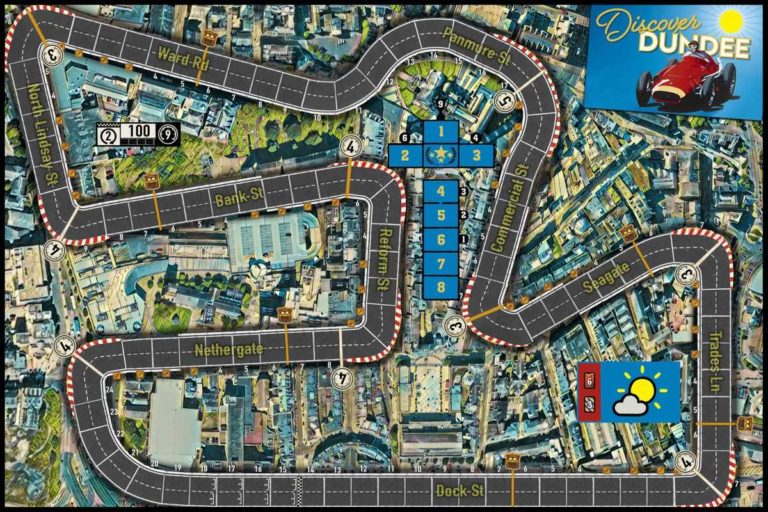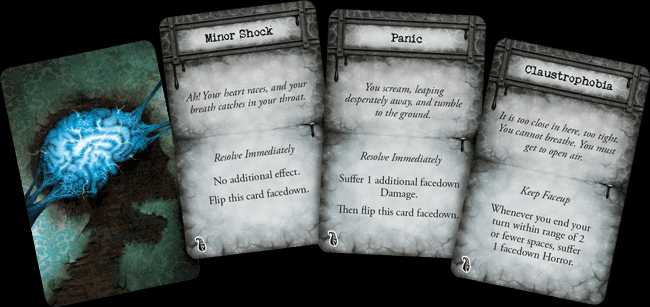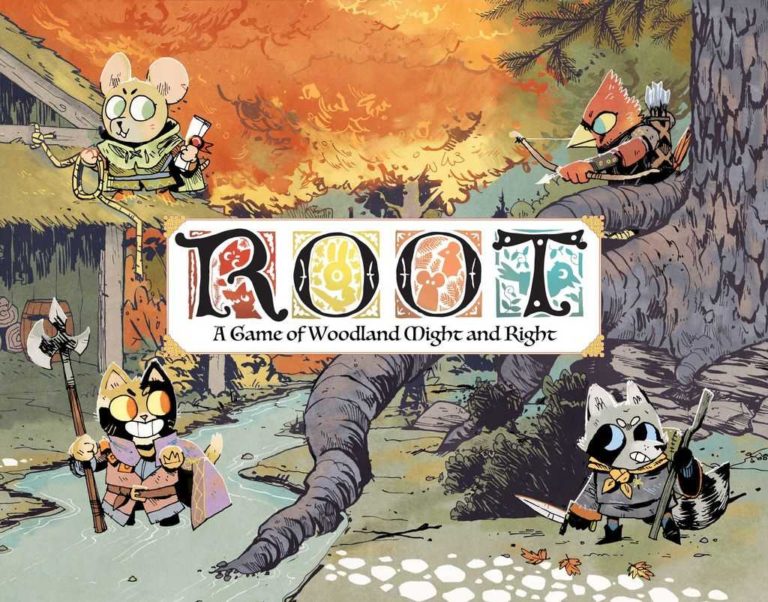Strategic Food Chain Magnate Review: The Ultimate Breakdown
Strategic Food Chain Magnate Review: The Ultimate Breakdown
Get ready to dive into the deliciously competitive world of Food Chain Magnate, a heavyweight amongst strategic board games where your aim is to become the ultimate burger baron. Let’s crack open my Food Chain Magnate review; think of it as sitting down to a gourmet meal of thought-provoking gameplay layered with deep strategy, sprinkled with a hint of cutthroat rivalry. I’ve spent countless nights, menu planning and resource managing, sometimes winning big, other times watching my empire crumble like a stale cookie.
Key Points:
- Food Chain Magnate is a strategic board game where players aim to dominate the fast-food market through shrewd business tactics and employee management.
- The game offers a deep strategic experience and simulates the cutthroat world of business management.
- The components are of high quality and contribute to the immersive experience.
- The game’s strategic depth is likened to a game of chess with entrepreneurial spice, requiring players to think several moves ahead in a competitive landscape.
- The game’s learning curve is steep but rewarding, offering endless hours of strategic entertainment once surmounted.
- The game accommodates 2 to 6 players, with different player counts offering unique experiences.
- The Ketchup Mechanism and Other Ideas expansion enhances the game by introducing new concepts, milestones, and layers of strategy.
Remember that night when we stayed up past midnight, agonizing over every move, the room silent but for the sound of flipping cards and moving tokens? That’s Food Chain Magnate in a nutshell – it’s not just a game; it’s a cerebral battlefield where each decision can lead to booming success or a fast-food fiasco. Moreover, it’s a game that demands respect, for both its strategic complexity and the way it simulates the cutthroat world of business management.
Now, if you’re like some of my friends, who think strategy games should be more tactical and less about long-term planning, or you find the theme somewhat disconnected, I get it – this game isn’t for everyone. Yet, if you’re like my SO and me, or the numerous enthusiasts I’ve met who relish the intricate dance of competition and strategy, then join me as we dissect everything from setup to execution in this cornerstone of modern gaming cuisine.
Delving into the Core of Food Chain Magnate
Imagine, if you will, a table transforming into a dynamic market of supply and demand. In the core of Food Chain Magnate, lies the simplicity of its singular goal – dominate the fast-food market. Yet, it’s the complexity of achieving this through shrewd business tactics and employee management that elevates this game to a fine dining experience in the board game bistro.
Overview of the Game’s Concept
At its heart, Food Chain Magnate is an elegant symphony of economic principles and corporate strategy. Imagine constructing a towering skyscraper – your pieces, marketing campaigns, kitchen staff, and menu items, each carefully selected to secure a victory in the dog-eat-dog world of gastronomy glory. Unlike games with random elements of chance, here every success and failure is cooked up by your own hands.
For newcomers, imagine opening a restaurant in a bustling town, each block another chance to attract famished patrons. Your task: to lure hungry customers with an appetizing menu, convince them with competitive prices, and overwhelm them with copious choices, from fizzy drinks to sumptuous pizzas. The player who best manages this culinary ballet of supply and demand will see their restaurant chain crowned the talk of the town.
Food Chain Magnate is a game of strategic economic principles and corporate tactics, where success and failure are determined by your own decisions rather than chance.
Components and Quality of Materials
Slide open the box, and you’re greeted with a cornucopia of cardboard wonders – cards, tiles, and tokens ripe for the playing. The quality of the materials is akin to receiving a Michelin star to your senses; sturdy and pleasing to touch, they promise to endure the strategic feasts for years to come. The menu of components is extensive, each serving a critical role in your quest to franchise fame.
Now, the aesthetic may not be everyone’s slice of pie; for some, like myself, the neat card art and fanciful theme are a treat, yet others find the game’s visuals rather bland. However, whether you’re captivated by the artistry or not, when game night unfolds, and the board sprawls across the table, it’s the strategic depth that will grip you, rendering the visual banquet secondary to the gameplay feast.
The Strategic Depth of Food Chain Magnate
To fully appreciate the strategic depth of Food Chain Magnate, think of it as a game of chess served up with a side of entrepreneurial spice. Every maneuver neatly aligns with your unfolding business narrative, and like a seasoned CEO, you must adapt and think several moves ahead in this competitive landscape.
Key Strategies for Success
Navigating the nuances of Food Chain Magnate‘s strategic environment is akin to perfecting a secret recipe. You’ll soon learn that milestones are the key ingredients, shaping your gameplay and giving you the edge over your competitors. Build a strong foundation of employees, and manage them wisely to create a well-oiled machine of a fast-food empire.
Remember that opening game when I was so focused on staffing my kitchen, I barely noticed you cornering the market with an aggressive marketing campaign? Lesson learned: balance is crucial. Those who can juggle the demands of price wars, food quality, and consumer trends will find themselves on the path to victory. Those who don’t may find their restaurant chains turning into foodie faux pas.
Navigating the strategic environment of Food Chain Magnate requires balancing milestones, staffing, marketing, and consumer demands to build a successful fast-food empire.
Analyzing the Milestone Mechanic
The milestone mechanic in Food Chain Magnate is a game-changer – quite literally. Imagine you’re in the middle of a marathon, and with every strategic stride, you unlock a bonus that propels you forward. That’s what achieving milestones feels like. There’s a thrilling rush when you snag a milestone first, be it everlasting marketing campaigns or exclusive discounts on menu items.
Each milestone acts as a pivotal moment, shaping the trajectory of your empire. At first, the options seem overwhelming, like a maze of managerial mania. Yet, once you understand their potential, they transform into stepping stones to success. Consider how one game-changing moment left me with the ability to freeze my food indefinitely – a significant advantage in the relentless race for fast-food dominance.
But herein lies a lesson on the double-edged sword of opportunity – focusing too narrowly on certain milestones can leave you vulnerable elsewhere. Each game becomes a high-stakes chess match; you must foresee your opponent’s moves and possibly sacrifice short-term gains for a last-minute checkmate – those refrigerators won’t stock themselves, after all.
Gameplay Experience
Every round in Food Chain Magnate unfolds like an episode of a riveting culinary show, with players as the ambitious chefs crafting their signature dishes – or strategies, in this case – vying for the judges’ – customers’ – favor.
Setting Up Your Fast Food Empire
The initial setup of Food Chain Magnate is deceptively calm, like surveying your domain before the day’s hustle begins. Your board represents the town, a blank slate on which to etch your fast-food legacy. First, select your starting location; visualize setting up the prime spot in town where hungry masses will flock. You’ll feel like a land mogul, strategically placing your first restaurant.
Place your CEO card down and feel the weight of decision-making settle on your shoulders. In those first moves, you’re carefully drafting the blueprint of your business empire. Will you invest in burger chefs, pizza chefs, or perhaps go straight for a zealous marketing team to inundate the town with your brand’s presence? Each choice is a crucial cog in the grand machine of your burgeoning business.
The initial setup of Food Chain Magnate is a crucial time for strategically planning and making decisions that will shape your business empire.
Turn-by-Turn Breakdown and Flow of Play
As you commence gameplay, each turn in Food Chain Magnate can feel as high-stakes as a televised cooking competition finale. You place your employees, chart your marketing plans, and prepare for the dinner rush. Yet, the beauty of the game lies not in each individual turn, but in how they string together into a coherent strategy.

One moment, you’re flying high on a surge of diner demand, the next you’re scrambling to adjust to the sudden whims of your customers. It’s a dance of supply and demand, a test of efficiency, and an exercise in foresight. Will you aim for a broad menu or specialize in a few items? Scale too quickly, and you may collapse; too slowly, and the competition will devour your share of the pie. It’s about finding the rhythm, setting the pace, and outmaneuvering your opponents one turn at a time.
The Competitive Edge
Stepping into the competitive arena of Food Chain Magnate is like donning a chef’s hat in a gourmet kitchen showdown; only the shrewdest and most tactical players will taste victory.
Player Interaction and Competition
Player interaction in Food Chain Magnate is a delicate ballet of rivalry and strategy. Think of it as a marketplace where every transaction and negotiation affects everyone else’s fortunes. In one game, a friend and I each eyed the same neighborhood for expansion. This silent standoff became a match of wits and nerve, where only calculated risks and sharp entrepreneurship secured success.
Cozy evenings with friends take on new meaning as you engage in tacit power struggles over territory and customer loyalty. Each player’s actions ripple through the market, disrupting plans, and opening unexpected opportunities. Still, despite its cut-throat ethos, it’s a competition that engenders respect among players, as each decision can spell triumph or tragedy in the empire-building saga.
Player interaction in Food Chain Magnate is a delicate ballet of rivalry and strategy.
Balancing Risk and Reward
Balancing risk and reward in Food Chain Magnate is an exercise in strategic fortitude. Each decision is fraught with potential – whether it sets up your next monumental play or leaves you exposed to a predatory rival. There’s an almost tangible tension, like walking a tightrope between conservative play and bold expansion.
In fact, I recall a game where I gambled on an aggressive marketing strategy, saturating the town with flyers for my half-price pizzas. It was a bold move, and the gambit paid off handsomely – until a savvy opponent undercut my prices, turning my triumph into a lesson in humility. The calculus of risk is ever-present, forcing you to be acutely aware of the board state, your opponent’s strategies, and the emergent market conditions.
The Learning Curve
Welcome to the relished challenge that is Food Chain Magnate’s learning curve – steep, yet satisfying, akin to mastering a complex recipe that rewards you with a delectable feast upon completion.

Accessibility for New Players
When I first introduced Food Chain Magnate to my gaming group, the initial impression was that of both excitement and a touch of overwhelm. You see, for new players, the accessibility factor always comes into play, right? They see this colorful, bustling board and cards spread everywhere representing staff you can employ, and their eyes either light up with curiosity or cloud over with a hint of anxiety. The rulebook is comprehensive, but if you’re a newbie looking at this dizzying array of choices, it might not seem very welcoming at first glance.
To mitigate this, I’ve found that focusing on progressive learning during the first game can help enormously. I think it’s essential to stress that making mistakes is part of the experience when you’re starting out. I remember vividly how I snagged a burger bar milestone in one of my first games, only to realize I had completely overlooked the drinks market – rookie mistake! But here’s the key: it’s a game that rewards strategic planning and careful consideration of your opponents’ moves, so with each play, your understanding of intricate mechanics and potential tactics will deepen.
For those worried about jumping into the deep end, many seasoned board gamers, including myself, are eager to help newcomers navigate the intricacies of the game. Various online resources and playthrough videos also serve as valuable tools to demystify the gameplay. New players should be encouraged to ask questions and play without fear of early defeat – Food Chain Magnate is a journey, not a sprint, and that initial bafflement turns into strategic finesse with time.
Complexity and Rule Mastery
Delving into the complexity of Food Chain Magnate, one can’t help but feel a sense of awe at the game’s design. It’s like a fine clockwork, where every piece interacts with precision and purpose. I’ve often described rule mastery in Food Chain Magnate as a gradual but deeply rewarding climb – each session grants you higher vistas of understanding and strategic possibilities. The sheer elegance of the card-based system, where each card is a staff member with a specific role, opens up a myriad of pathways to build your fast-food empire.
The first time I deliberately created a supply shortage to inflate prices, I felt like a culinary Machiavelli, puppeteering the market with glee. It’s moments like that – when you organically comprehend a complex rule and exploit it to its fullest – that elevate your gaming experience.
The journey towards mastery requires patience, though. With each game, you discover a new piece of the puzzle, a new tactic, which in turn reveals more layers you hadn’t noticed before. It’s this evolving complexity that transforms a beginner’s rudimentary understanding of the rules into an adept player’s strategic zen. And even after countless sessions, I’m still excited by the prospect of uncovering new subtleties amidst Food Chain Magnate’s rich tapestry of rules.
Mastering the intricate rules of Food Chain Magnate is a gradual and rewarding climb, leading to a deep understanding and strategic prowess that transforms the gaming experience.
Replayability and Game Variants
Food Chain Magnate’s replayability shines bright like a neon sign on your favorite diner. What keeps this game fresh, game after game, is not just the vast strategical depth – oh no, it’s more than that. It lies in the nuances of each play and how player’s decisions weave an entirely unique tale every time. I’ve seen players focus on efficiency, crafting a lean machine of a restaurant, and others build sprawling empires, each with success and pitfalls.
The Impact of Different Player Counts
The game comfortably accommodates from 2 to 6 players, with each varying player count offering a unique flavor. In a two-player game, for instance, the battlefield feels more like a tactical duel, each move carrying significant weight as you vie directly with your opponent’s strategies. Add a few more players to the mix, and the dynamic shifts as the map becomes a bustling metropolis of opportunity and cutthroat competition.
With more players, the competition feels akin to a shark tank, yet there’s a strange camaraderie that forms as everyone orchestrates their strategies. I’ll never forget one five-player session where we literally formed a fast-food district, the map a patchwork of aggressive marketing campaigns and price wars – it was like a corporate standoff with the tension of a blockbuster finale.
In contrast, the tension in smaller player counts can often feel more precise, akin to a chess match. You’re making moves and counter-moves in a tight space, every action echoing through the market. You’d think that would make for a slower game, but oh, how it races the heart!
Expansions and Additional Content
Let’s talk about dressing up your burger with all the fixings – that’s what expansions and additional content do for Food Chain Magnate. While the base game itself packs a flavorful punch, there’s a compelling suite of expansions that add new layers of depth and strategic tang. “The Ketchup Mechanism and Other Ideas” expansion not only deepens the gameplay with additional modules – it also cleverly plays on the theme.
Players can now explore new milestones, introduce ketchup as a condiment (which, trust me, shakes up the market considerably), and even gain access to luxury items changing the dining landscape. It allows for players, especially veterans looking for that extra heat, to customize their experience and delve into unexplored restaurants’ strategies.
These expansions and modules have been a huge hit in my gaming circles, adding seasoning and zest to a game that already shines on its base merits. They provide fresh avenues to explore and new challenges to overcome, significantly enhancing Food Chain Magnate’s replay value.
Pros and Cons
As with any board game, it’s crucial to weigh both the deliciously seasoned chicken and the occasional overcooked fries.

Highlights of Food Chain Magnate
Where do I start with the highlights? Food Chain Magnate is a strategist’s delight, offering players a chance to truly flex their CEO muscles and embark on an intense brain-burning endeavour. The degree of player agency is truly exceptional, allowing for intricate planning and creative freedom. As you watch your chain of fast-food restaurants grow and your meticulously planned strategies bear fruit, it’s genuinely gratifying.
Another striking highlight is how immersive the game is; the art, while simple, carries a retro charm that brings out the theme’s tongue-in-cheek critique of capitalist culture. The game’s learning curve is steep, yes, but it lends itself to endless hours of strategic entertainment once surmounted.
Food Chain Magnate offers a strategist’s delight, with exceptional player agency, immersive retro charm, and a steep learning curve that leads to endless hours of strategic entertainment.
Potential Drawbacks to Consider
But it’s not all sunshine and soda pop. For one, Food Chain Magnate can be a bit unforgiving to newbies, potentially resulting in a disheartening experience for those not prepared for its depth. I have seen players experience devastating defeats because of an early game misstep, which can be tough to swallow in a game that often spans several hours.

Additionally, the aesthetics of the game components draw mixed feelings. While I find the minimalist art style functional and thematic, it isn’t universally appealing. And let’s not dance around it – the price point can be quite steep, presenting a barrier to some. But as someone who enjoys a good challenge and engaging gameplay, I find these drawbacks to be minor compared to the overall satisfaction the game provides.
FAQs
1. What makes Food Chain Magnate stand out from other strategy board games?
What sets Food Chain Magnate apart from other strategy board games is its uncompromising commitment to a pure, player-driven experience. There’s minimal luck involved, ensuring that your strategic choices and foresight dictate your success.
2. How long does a typical game of Food Chain Magnate take to play?
A typical game of Food Chain Magnate can take between 2 to 4 hours, depending on the players’ experience levels and the strategies being employed throughout the game.
3. Can Food Chain Magnate be enjoyed by casual gamers, or is it geared more towards hardcore enthusiasts?
Food Chain Magnate can be intense and is generally geared more towards hardcore enthusiasts, but with the right mindset and dedication to learning the game, casual gamers can also find enjoyment in its strategic depths.
4. Are there any expansions available for Food Chain Magnate, and do they enhance the game?
Yes, there are expansions available for Food Chain Magnate, notably “The Ketchup Mechanism and Other Ideas,” which significantly enhance the game by introducing new concepts, milestones, and layers of strategy.
Conclusion
Food Chain Magnate stands as a testament to what board games can achieve in terms of strategic possibilities and replay value. It’s not just a game but an exercise in resource management, player negotiation, and tactical foresight. Throughout this Food Chain Magnate review, we’ve broken down the elements that craft such a unique and challenging experience – from the game’s accessibility to its strategic depths, gameplay experience, and so much more.
Every playthrough is a new challenge, a fresh opportunity to fine-tune your approach or try out a completely different strategy. Whether it’s your first or fiftieth time establishing your empire, there’s always something to learn, always a new tactic to attempt. In the grand tapestry of board gaming, Food Chain Magnate is a vibrant thread woven with expertise and love for the medium. It’s a game that’s earned its place on my shelf, and I suspect it will do the same on yours.
As we wrap up this Food Chain Magnate review, I invite you to reflect on your own gaming journeys. What has been your most memorable moment of strategic triumph? Are you ready to dive into the competitive world of fast food with Food Chain Magnate? I hope you’ve enjoyed this culinary conquest of capitalism as much as I enjoy sharing it with fellow enthusiasts. May the best franchise win – and until next time, happy gaming!
Lucas
More Boardgame Reviews:
This article uses material from BoardGameGeek and is licensed under the Creative Commons Attribution-Share Alike License.







